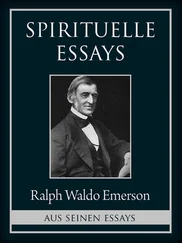Ralph Waldo Emerson - The Conduct of Life
Здесь есть возможность читать онлайн «Ralph Waldo Emerson - The Conduct of Life» — ознакомительный отрывок электронной книги совершенно бесплатно, а после прочтения отрывка купить полную версию. В некоторых случаях можно слушать аудио, скачать через торрент в формате fb2 и присутствует краткое содержание. Жанр: unrecognised, на английском языке. Описание произведения, (предисловие) а так же отзывы посетителей доступны на портале библиотеки ЛибКат.
- Название:The Conduct of Life
- Автор:
- Жанр:
- Год:неизвестен
- ISBN:нет данных
- Рейтинг книги:4 / 5. Голосов: 1
-
Избранное:Добавить в избранное
- Отзывы:
-
Ваша оценка:
- 80
- 1
- 2
- 3
- 4
- 5
The Conduct of Life: краткое содержание, описание и аннотация
Предлагаем к чтению аннотацию, описание, краткое содержание или предисловие (зависит от того, что написал сам автор книги «The Conduct of Life»). Если вы не нашли необходимую информацию о книге — напишите в комментариях, мы постараемся отыскать её.
The Conduct of Life — читать онлайн ознакомительный отрывок
Ниже представлен текст книги, разбитый по страницам. Система сохранения места последней прочитанной страницы, позволяет с удобством читать онлайн бесплатно книгу «The Conduct of Life», без необходимости каждый раз заново искать на чём Вы остановились. Поставьте закладку, и сможете в любой момент перейти на страницу, на которой закончили чтение.
Интервал:
Закладка:
Ralph Waldo Emerson
The Conduct of Life
PUBLISHER NOTES:
Take our Free
Quick Quiz and Find Out Which
Best Side Hustle is ✓Best for You.
✓ VISIT OUR WEBSITE:
→ LYFREEDOM.COM ← ← CLICK HERE←
I.
FATE.
Delicate omens traced in air
To the lone bard true witness bare;
Birds with auguries on their wings
Chanted undeceiving things
Him to beckon, him to warn;
Well might then the poet scorn
To learn of scribe or courier
Hints writ in vaster character;
And on his mind, at dawn of day,
Soft shadows of the evening lay.
For the prevision is allied
Unto the thing so signified;
Or say, the foresight that awaits
Is the same Genius that creates.
FATE.
It chanced during one winter, a few years ago, that our cities were bent on discussing the theory of the Age. By an odd coincidence, four or five noted men were each reading a discourse to the citizens of Boston or New York, on the Spirit of the Times. It so happened that the subject had the same prominence in some remarkable pamphlets and journals issued in London in the same season. To me, however, the question of the times resolved itself into a practical question of the conduct of life. How shall I live? We are incompetent to solve the times. Our geometry cannot span the huge orbits of the prevailing ideas, behold their return, and reconcile their opposition. We can only obey our own polarity. 'Tis fine for us to speculate and elect our course, if we must accept an irresistible dictation.
In our first steps to gain our wishes, we come upon immovable limitations. We are fired with the hope to reform men. After many experiments, we find that we must begin earlier,—at school. But the boys and girls are not docile; we can make nothing of them. We decide that they are not of good stock. We must begin our reform earlier still,—at generation: that is to say, there is Fate, or laws of the world.
But if there be irresistible dictation, this dictation understands itself. If we must accept Fate, we are not less compelled to affirm liberty, the significance of the individual, the grandeur of duty, the power of character. This is true, and that other is true. But our geometry cannot span these extreme points, and reconcile them. What to do? By obeying each thought frankly, by harping, or, if you will, pounding on each string, we learn at last its power. By the same obedience to other thoughts, we learn theirs, and then comes some reasonable hope of harmonizing them. We are sure, that, though we know not how, necessity does comport with liberty, the individual with the world, my polarity with the spirit of the times. The riddle of the age has for each a private solution. If one would study his own time, it must be by this method of taking up in turn each of the leading topics which belong to our scheme of human life, and, by firmly stating all that is agreeable to experience on one, and doing the same justice to the opposing facts in the others, the true limitations will appear. Any excess of emphasis, on one part, would be corrected, and a just balance would be made.
But let us honestly state the facts. Our America has a bad name for superficialness. Great men, great nations, have not been boasters and buffoons, but perceivers of the terror of life, and have manned themselves to face it. The Spartan, embodying his religion in his country, dies before its majesty without a question. The Turk, who believes his doom is written on the iron leaf in the moment when he entered the world, rushes on the enemy's sabre with undivided will. The Turk, the Arab, the Persian, accepts the foreordained fate.
"On two days, it steads not to run from thy grave,
The appointed, and the unappointed day;
On the first, neither balm nor physician can save,
Nor thee, on the second, the Universe slay."
The Hindoo, under the wheel, is as firm. Our Calvinists, in the last generation, had something of the same dignity. They felt that the weight of the Universe held them down to their place. What could they do? Wise men feel that there is something which cannot be talked or voted away,—a strap or belt which girds the world.
"The Destiny, minister general,
That executeth in the world o'er all,
The purveyance which God hath seen beforne,
So strong it is, that tho' the world had sworn
The contrary of a thing by yea or nay,
Yet sometime it shall fallen on a day
That falleth not oft in a thousand year;
For, certainly, our appetites here,
Be it of war, or peace, or hate, or love,
All this is ruled by the sight above."
CHAUCER: The Knight's Tale .
The Greek Tragedy expressed the same sense: "Whatever is fated, that will take place. The great immense mind of Jove is not to be transgressed."
Savages cling to a local god of one tribe or town. The broad ethics of Jesus were quickly narrowed to village theologies, which preach an election or favoritism. And, now and then, an amiable parson, like Jung Stilling, or Robert Huntington, believes in a pistareen-Providence, which, whenever the good man wants a dinner, makes that somebody shall knock at his door, and leave a half-dollar. But Nature is no sentimentalist,—does not cosset or pamper us. We must see that the world is rough and surly, and will not mind drowning a man or a woman; but swallows your ship like a grain of dust. The cold, inconsiderate of persons, tingles your blood, benumbs your feet, freezes a man like an apple. The diseases, the elements, fortune, gravity, lightning, respect no persons. The way of Providence is a little rude. The habit of snake and spider, the snap of the tiger and other leapers and bloody jumpers, the crackle of the bones of his prey in the coil of the anaconda,—these are in the system, and our habits are like theirs. You have just dined, and, however scrupulously the slaughter-house is concealed in the graceful distance of miles, there is complicity,—expensive races,—race living at the expense of race. The planet is liable to shocks from comets, perturbations from planets, rendings from earthquake and volcano, alterations of climate, precessions of equinoxes. Rivers dry up by opening of the forest. The sea changes its bed. Towns and counties fall into it. At Lisbon, an earthquake killed men like flies. At Naples, three years ago, ten thousand persons were crushed in a few minutes. The scurvy at sea; the sword of the climate in the west of Africa, at Cayenne, at Panama, at New Orleans, cut off men like a massacre. Our western prairie shakes with fever and ague. The cholera, the small-pox, have proved as mortal to some tribes, as a frost to the crickets, which, having filled the summer with noise, are silenced by a fall of the temperature of one night. Without uncovering what does not concern us, or counting how many species of parasites hang on a bombyx; or groping after intestinal parasites, or infusory biters, or the obscurities of alternate generation;—the forms of the shark, the labrus , the jaw of the sea-wolf paved with crushing teeth, the weapons of the grampus, and other warriors hidden in the sea,—are hints of ferocity in the interiors of nature. Let us not deny it up and down. Providence has a wild, rough, incalculable road to its end, and it is of no use to try to whitewash its huge, mixed instrumentalities, or to dress up that terrific benefactor in a clean shirt and white neckcloth of a student in divinity.
Will you say, the disasters which threaten mankind are exceptional, and one need not lay his account for cataclysms every day? Aye, but what happens once, may happen again, and so long as these strokes are not to be parried by us, they must be feared.
But these shocks and ruins are less destructive to us, than the stealthy power of other laws which act on us daily. An expense of ends to means is fate;—organization tyrannizing over character. The menagerie, or forms and powers of the spine, is a book of fate: the bill of the bird, the skull of the snake, determines tyrannically its limits. So is the scale of races, of temperaments; so is sex; so is climate; so is the reaction of talents imprisoning the vital power in certain directions. Every spirit makes its house; but afterwards the house confines the spirit.
Читать дальшеИнтервал:
Закладка:
Похожие книги на «The Conduct of Life»
Представляем Вашему вниманию похожие книги на «The Conduct of Life» списком для выбора. Мы отобрали схожую по названию и смыслу литературу в надежде предоставить читателям больше вариантов отыскать новые, интересные, ещё непрочитанные произведения.
Обсуждение, отзывы о книге «The Conduct of Life» и просто собственные мнения читателей. Оставьте ваши комментарии, напишите, что Вы думаете о произведении, его смысле или главных героях. Укажите что конкретно понравилось, а что нет, и почему Вы так считаете.












